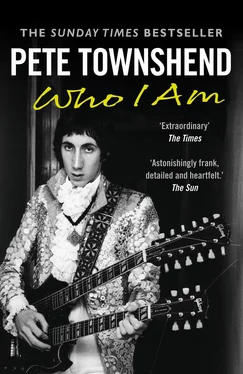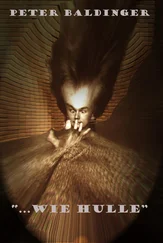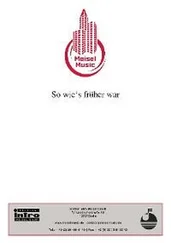On this tour we had less to do than we would have liked. I read Heinlein and Borges and tried to stay settled. Although today this sounds to me the perfect life, it didn’t feel that way at the time. For the first half of the tour I carried no tape machine; instead I drew diagrams of my studio back home, and began to consider various new approaches to recording. Later I would find that many of the ideas I was scribbling down were already becoming industry secrets, thanks to the efforts of engineers working with Brian Wilson and George Martin, The Beatles’ producer.
One idea involved laying off a guitar solo on a separate piece of two-track tape, replacing all the spaces in the solo with blank tape, inverting the tape and playing a new solo matching the old but backwards. Another involved tape loop chord machines operated by foot pedals; tape sampling had been invented in the Mellotron, a kind of organ used by The Beatles that used loops of tape triggered by a conventional piano keyboard. I also suggested recording loops of white noise and tuning them to make it musical. I described techniques for creating extreme reverb effects using tape delays combined with echo chambers, reverb through revolving organ speakers and through guitar amplifiers with the vibrato unit turned on; all these effects became part of my home studio creative arsenal.
I commissioned a small low-power radio transmitter that would simulate a true radio sound to check how my tracks would sound if they were ever broadcast. I was already experimenting with stereo ‘flanging’, taking two identical tracks and bringing them in and out of phase with each other to create a psychedelic effect. I built a speaker in a small box, attached a tube and put the tube in my mouth, allowing me to ‘speak’ music. When Frank Zappa leaned over to me conspiratorially at the Speakeasy Club in London and described this new invention to me, I was polite enough not to tell him I’d already come up with it.
In New York, The Who did a show on Long Island, then we went to the Village Theater to support Al Kooper’s Blues Project. On the same bill was Richie Havens, an intense, engaging man and an effervescent, unique performer. His acoustic guitar was usually tuned to a particular chord, and he sang his full-throated songs so powerfully that he sounded like a band in himself. My old buddy Tom Wright said that when you shook hands with Richie you had to be the one to break the shake first, otherwise you could be there, gazing at his beaming smile, for all eternity.
When the Hermits’ tour hit Baton Rouge, the tour manager warned us that there had been recent race riots: we were to be on our best behaviour, and vigilant for trouble. There was a possibility our show there would be cancelled. We were all hyped up, but there was no obvious sense of tension, no visible problem. We were aware that the race issue had caught fire in the South, but at the time we didn’t feel part of the battle.
In August we passed back through New York to do some recording: ‘Mary Anne with the Shaky Hands’, some more overdubs on ‘I Can See for Miles’ and a version of ‘Summertime Blues’. During this process I began to question some of Kit’s technical decisions for the first time; he was trying to keep me out of the recording process, but by this time I knew a lot about it, and had a lot to offer. I considered some of his technical decisions amateurish, and he seemed to be pressing engineers to lower their standards to get more level on a master, causing distortion by having all the needles in the red. As a result many of our recordings from this time don’t sound as clean as they should have.
We had no illusions of making any money on this tour. We just weren’t very well known yet, and we were primarily playing in a support role. Many of the shows were less than half full; some were cancelled. I’m sure we collected a few fans on the way, and the word probably spread that we were a colourful, eccentric English outfit. But ten minutes on stage, a smoke bomb and smashed equipment says very little about what The Who hoped to become.
What did we hope to become? Was my mission to embellish the acid trips of an audience that no longer cared when a song began or ended? Had the song itself become a mere frivolity? Look at the pretty colours. I loved smoking a little grass and listening to my two favourite albums, Sgt. Pepper and Pet Sounds , and every time I listened I heard something new, but I wish I could say I heard something important. These two great albums indicated the future, but passed on no tools, codes or obvious processes that would lead to a door. I ached for more than just a signpost pointing to the future, which is what these albums were to me.
Brian Wilson went on to attempt a masterwork he called Smile , but lost it to mental disorder and over-ambition. The Beatles went on to work on the prematurely curtailed Magical Mystery Tour , which we supposed was meant to be the film version of Sgt. Pepper . Both were wonderful, but both made clear that these pop alchemists had failed to produce anything but gold: they hadn’t produced the love or passion of Broadway, nor inspired the humour or hope of Beat poetry, Bebop or Pete Seeger’s Hudson River Peace Boat.
As the Sixties dripped by I felt like the messenger from Mars in Robert Heinlein’s Stranger in a Strange Land , who promises that the secret of all existence is simply to learn to wait.
My wait came to an end in a most unlikely place. In a room of a Holiday Inn in an Illinois town called Rolling Meadows – with a vibrating bed far too big, a TV with a fuzzy screen, sheets and towels that smelled slightly of something warm but not quite alive, a terrace that looked out onto a car dealer’s lot, grasshoppers buzzing in the scrub grass, a distant freight-train sounding its horn, the hiss of tyres from a passing Buick on the road nearby, a car door slamming and someone shouting ‘Goodbye y’all!’ – I heard the voice of God.
In an instant, in a very ordinary place at an unexceptional time, I yearned for some connection with a higher power. This was a singular, momentous epiphany – a call to the heart.
Why did God favour this particular place in America? Because it was so new? Because it was so sunny? Suddenly it became clear that I longed for a transcendent connection with the universe itself, and with its maker. This was the moment I had longed for. My mind was being set alight by the psychedelic times, but revelation came to me in the quietude and seductive order of Middle America.
I was drawn equally to both extremes, longing simultaneously for the traditional pastoral life I had left behind in England, a gentle life as an earnest, hard-working art student, which had been interrupted almost before it had begun by a brutally sequestered, constrained, testing life on the road, away from friends and loved ones.
While I made progress with my search for meaning, Keith was causing havoc with a birthday cake, a car, a swimming pool, a lamp and a young fan’s bloody head.
How amusing it has been to spend my life pretending it was amusing. In truth, this day was unpleasant for me, though it has been turned into something of an apocryphal joke by everyone involved.
Keith was determined to have a great birthday party, egged on by the Holiday Inn banner outside the hotel: ‘Happy Twenty-First Keith Moon’. He was actually only twenty. By the time I reached the party room the cake was all over the floor, the walls and Keith’s face. In the swimming pool a Lincoln Continental balanced precariously, half in and half out. Later I heard Keith had released its brake and it had rolled in. I was trying to get Keith back to his room (he was raging by this time) when a young man approached, asking for his autograph; Keith threw a lamp at him, hitting him on the head. Keith then managed to knock out his own teeth, and it was only because he was hidden away at the dentist that he wasn’t arrested.
Читать дальше












